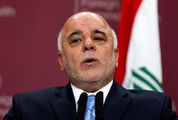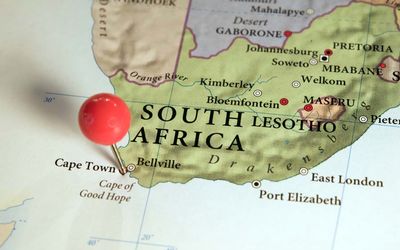IF WE were really good at coming up with innovative products and services, and we had strong institutions, we might rank much higher up on the World Economic Forum’s (WEF) Global Competitiveness list than we do at present.
The top countries on the table, led by Switzerland and Singapore, fit the mould, with highly innovative economies and very strong institutions. South Africa clearly does not — which is why it is fairly low down on the WEF’s rankings, and sliding. The latest Global Competitiveness list shows South Africa is down one place from 52nd to 53rd. Business Unity South Africa points out that a few years ago South Africa was ranked 35th.
True, South Africa is comfortably in the top half of the rankings of 148 countries. We could also take some pride in the fact that we are number two on the Brics table, behind China but ahead of Brazil (which is losing ground rapidly), as well as India and Russia. And we are number two on the rankings for sub-Saharan Africa, even though we have now lost first place in the competitiveness stakes to Mauritius.
So there is some good news in the WEF report. That should not be underplayed — and we should listen to what the survey is telling us about what’s good and competitive about our economy, and make sure we nurse those attributes carefully.
Once again, some of South Africa’s private sector institutions, particularly its financial regulation, come out tops. We rank right up there on the regulation of our securities exchanges, the efficacy of our boards of directors, our auditing and reporting standards and our legal rights.
Those matter a great deal to our ability to attract investment. And as our ranking suggests, South Africa still offers an attractive business environment for firms, foreign and local, wanting to base themselves in South Africa and trade through our financial markets.
But does this make South Africa an attractive and competitive environment in which to make real-economy investments?
The WEF survey reminds us, again, of what ails our economy and holds it back. In education, labour and public healthcare, South Africa’s rankings are shocking. We compete with some of the poorest and most dysfunctional countries and win the race to the bottom, on the quality of our maths and science education. Likewise the quality of co-operation between labour and employers is ranked 148th out of 148, and we are not much better (147th and 146th ) on hiring and firing practices and the quality of our educational system in general.
What’s disturbing about this is the contrast, which one economist noted reflected an economy of extremes. So we have excellent performance by some institutions, especially private sector institutions in financial markets.
Then we have failed institutions, particularly in education, where our teachers and schools continue to fail to teach children in subjects which are essential to the functioning of a modern economy. And there are our labour market institutions, which simply are not working to create an environment in which workers can work and bosses can manage.
With a ranking of 53, South Africa can and does aspire to be up there with the world’s more competitive economies. It does attract investment. It is taken seriously in world forums such as the Group of 20, where again this week it will no doubt punch above its weight.
That makes it extremely important that we are not let down by the core educational institutions which need to create a workforce that can provide the skills needed to compete. And it makes it urgently necessary to find paths not just to labour peace in the short term, but to a labour market dispensation which works. That means providing workers who have jobs with the protection they need, while time improving productivity and allowing in those without jobs.
And it means getting back to a relationship which includes co-operation rather than constant conflict.




















Change: -0.47%
Change: -0.57%
Change: -1.76%
Change: -0.34%
Change: 0.02%
Data supplied by Profile Data
Change: -1.49%
Change: 0.09%
Change: -0.47%
Change: 0.00%
Change: -0.02%
Data supplied by Profile Data
Change: 0.48%
Change: 0.91%
Change: 0.38%
Change: -0.15%
Change: 0.93%
Data supplied by Profile Data
Change: 0.24%
Change: -0.21%
Change: 0.26%
Change: -1.05%
Change: -1.41%
Data supplied by Profile Data